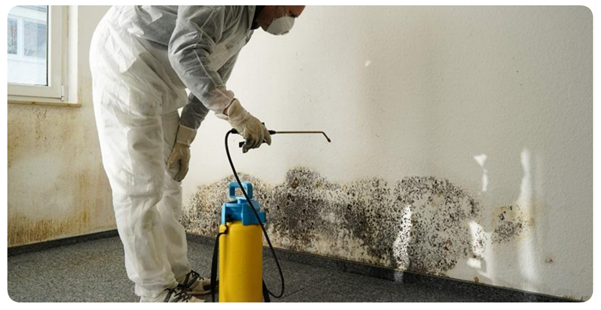Find the Best HDPE Sheets manufacturer in India
High-Density Polyethylene (HDPE) sheets have become an indispensable material across various industries due to their exceptional properties. Known for their high strength-to-density ratio, chemical resistance, and durability, HDPE sheets are widely used in applications ranging from construction to packaging. In this comprehensive guide, we will explore the key characteristics, benefits, and diverse applications of HDPE sheets, providing detailed insights that will help you understand why this material is so highly valued.
What Are HDPE Sheets?
HDPE, or High-Density Polyethylene, is a thermoplastic polymer made from petroleum. It is one of the most commonly used plastics worldwide, renowned for its high tensile strength and durability. HDPE sheets are produced by extruding or compressing the material into flat, thin pieces, which can vary in thickness and size depending on the specific application. The versatility of HDPE sheets makes them suitable for both industrial and commercial uses.
Key Properties of HDPE Sheets
1. High Strength-to-Density Ratio
One of the most notable characteristics of HDPE sheets is their high strength-to-density ratio. This means that while the material is lightweight, it is also incredibly strong and resistant to impact and wear. This property makes HDPE sheets ideal for applications that require a robust and durable material.
2. Chemical and UV Resistance
HDPE sheets exhibit excellent chemical resistance, making them suitable for use in environments where they may be exposed to corrosive substances. Additionally, HDPE is UV-resistant, which means it does not degrade easily when exposed to sunlight. This property is particularly beneficial for outdoor applications, ensuring long-term durability and performance.
3. Low Moisture Absorption
HDPE has a low moisture absorption rate, which means it does not easily absorb water. This property makes HDPE sheets ideal for use in wet or humid environments, as they will not swell or become damaged due to moisture exposure.
4. Recyclability
HDPE is fully recyclable, making it an environmentally friendly choice. The material can be melted down and reformed into new products without losing its integrity, reducing waste and promoting sustainability.
Applications of HDPE Sheets
1. Construction and Building Materials
In the construction industry, HDPE sheets are commonly used for applications such as waterproofing, flooring, and roofing. Their durability and chemical resistance make them an excellent choice for building materials that need to withstand harsh environmental conditions. HDPE sheets are also used in the manufacture of geomembranes for landfills and reservoirs, providing a reliable barrier to prevent contamination.
2. Packaging and Storage
HDPE sheets are widely used in the packaging industry due to their strength and resistance to chemicals and moisture. They are used to produce a variety of packaging solutions, including containers, bottles, and bags. The food industry, in particular, relies on HDPE for packaging products that require a hygienic and safe environment.
3. Automotive Industry
The automotive industry utilizes HDPE sheets for a range of applications, including the production of fuel tanks, fenders, and interior panels. The material’s lightweight nature contributes to improved fuel efficiency, while its durability ensures a long service life for automotive components.
4. Agriculture
In agriculture, HDPE sheets are used for a variety of purposes, including greenhouse construction, irrigation systems, and protective coverings for crops. The material’s resistance to UV rays and chemicals makes it suitable for outdoor use, protecting plants and soil from adverse conditions.
5. Marine and Aquatic Applications
HDPE sheets are also used in marine and aquatic environments due to their resistance to water and chemicals. They are used in the construction of boat components, docks, and other structures that are exposed to water. The material’s buoyancy and resistance to saltwater corrosion make it an ideal choice for these applications.
Advantages of Using HDPE Sheets
1. Cost-Effective
HDPE sheets are a cost-effective solution for many applications due to their long lifespan and low maintenance requirements. The material’s durability means it does not need to be replaced frequently, reducing overall costs.
2. Versatility
The versatility of HDPE sheets allows them to be used in a wide range of industries and applications. They can be easily fabricated and customized to meet specific needs, making them a flexible choice for many projects.
3. Safety
HDPE is a safe material that is free from harmful chemicals and toxins. It is approved for use in food and beverage packaging and is considered safe for a variety of other applications.
4. Environmentally Friendly
As a recyclable material, HDPE contributes to environmental sustainability. By choosing HDPE sheets, companies can reduce their environmental footprint and promote a circular economy.
Understanding HDPE Sheets
HDPE is a thermoplastic polymer derived from petroleum, characterized by a high strength-to-density ratio. This means that HDPE materials are both lightweight and strong, making them ideal for applications where durability and weight are crucial considerations. HDPE sheets are produced by molding the polymer into thin, flat sheets that can vary in size and thickness, depending on the intended use. The adaptability of HDPE sheets makes them suitable for a myriad of industrial, commercial, and residential purposes.
Detailed Properties of HDPE Sheets
1. High Strength and Durability
HDPE sheets are known for their remarkable strength and durability. These attributes are particularly valuable in applications where the material is subjected to mechanical stress, such as in the construction of heavy-duty containers or the lining of industrial equipment. The durability of HDPE also translates into a long service life, which is a significant advantage for businesses looking to minimize replacement costs and maintenance efforts.
2. Excellent Chemical Resistance
The chemical resistance of HDPE sheets is one of their most critical properties. HDPE is resistant to a wide range of chemicals, including acids, alkalis, and organic solvents, making it an ideal choice for applications in chemical processing plants, laboratories, and environments where exposure to harsh substances is common. This resistance ensures that HDPE products do not degrade easily, maintaining their integrity and functionality over time.
3. UV Resistance and Weatherability
Another noteworthy characteristic of HDPE sheets is their resistance to ultraviolet (UV) radiation. This property prevents the material from degrading when exposed to sunlight, which is especially important for outdoor applications. HDPE sheets maintain their color and structural integrity under prolonged sun exposure, making them suitable for use in outdoor furniture, playground equipment, and agricultural coverings.
4. Impact Resistance and Flexibility
HDPE sheets are also appreciated for their impact resistance and flexibility. They can withstand significant force without cracking or breaking, making them ideal for use in environments where they may be subject to impacts or heavy loads. The flexibility of HDPE also allows it to be molded into various shapes and sizes, providing versatility in design and application.
Diverse Applications of HDPE Sheets
1. Construction Industry
In the construction industry, HDPE sheets are used in a variety of applications, including as a material for water and gas pipelines, protective barriers, and insulation. The material’s impermeability to water and its resistance to chemicals make it an excellent choice for lining ponds, reservoirs, and canals. Additionally, HDPE sheets are used as geomembranes in landfill liners and mining operations, where they prevent the contamination of soil and groundwater.
2. Packaging Solutions
HDPE is extensively used in the packaging industry, where its properties provide both protection and durability. The material is used to manufacture a wide range of packaging products, including bottles, containers, and plastic bags. HDPE packaging is favored for its strength, lightweight nature, and resistance to chemicals and moisture, which ensures the safe storage and transport of goods.
3. Automotive Components
In the automotive sector, HDPE sheets are used in the production of fuel tanks, bumpers, and interior components. The material’s lightweight contributes to improved fuel efficiency, while its impact resistance enhances the safety and durability of vehicles. HDPE’s ability to be easily molded into complex shapes also allows for innovative designs and applications in automotive manufacturing.
4. Agricultural Uses
HDPE sheets are widely used in agriculture for applications such as greenhouse coverings, irrigation systems, and silage covers. The material’s resistance to UV radiation and chemicals ensures that it can withstand the harsh outdoor conditions often encountered in agricultural environments. HDPE sheets provide a durable and effective solution for protecting crops, conserving water, and enhancing agricultural productivity.
5. Marine and Aquatic Environments
In marine and aquatic applications, HDPE sheets are valued for their resistance to water and salt, making them ideal for use in the construction of docks, pontoons, and boat parts. The buoyant nature of HDPE also allows it to be used in floating structures, while its chemical resistance ensures longevity in harsh marine environments.
Conclusion
HDPE sheets offer an exceptional combination of strength, durability, and versatility, making them a preferred choice in various industries. Whether used in construction, packaging, automotive, agriculture, or marine applications, HDPE sheets provide reliable performance and numerous benefits. Their recyclability and cost-effectiveness further enhance their appeal as a sustainable and practical material solution.



